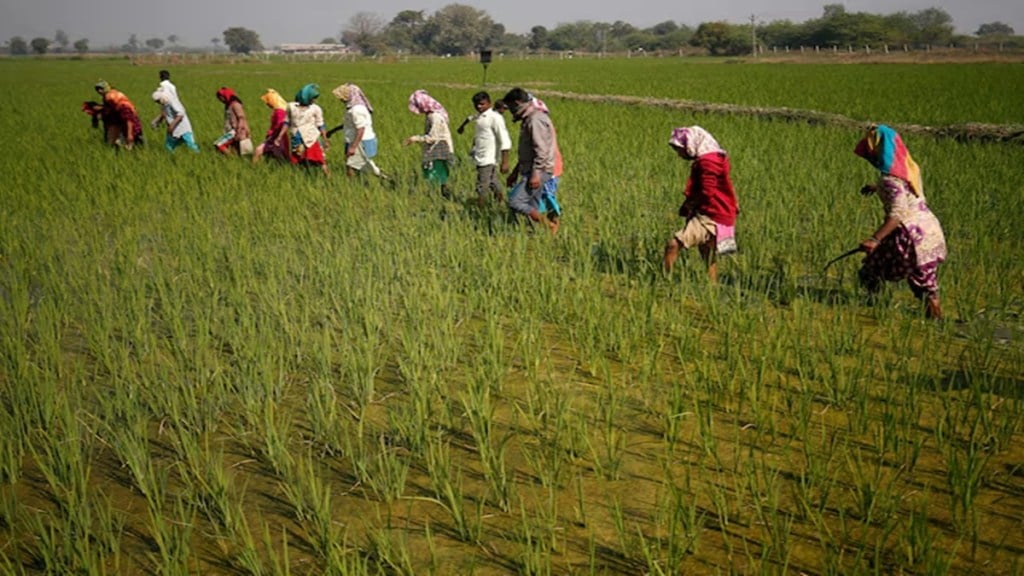The government on Wednesday announced annual hikes in the range of 4 -10% in the minimum support prices (MSP) for the winter-sown crops for the marketing season 2026-27 (April-June).
The MSP of wheat, the key rabi crop, has been raised by 6.6% to Rs 2,585/quintal for 2026-27 season, which was similar to the hike in remunerative price for the cereal in the previous year (2025-26).
In the 2024-25 marketing year, the wheat MSP was hiked by 7.05% to Rs 2,275/quintal on year, the steepest rate ever.
Officials said the hike in the MSP of wheat is significant as it is the second largest crop after paddy in terms of area under cultivation.
The government has set a record wheat production target of 119 million tonne (MT) for the 2025-26 crop year (July-June), as against the estimated record output of 117.5 MT for 2024-25 crop year.
High margins maintained for Wheat and Oilseeds
“The expected margin over All-India weighted average cost of production is 109% for wheat, mustard (93%), lentil ( 89%), gram (59%), barley (58%) and safflower (50%) ,” according to an official statement. From 2018-19, a new policy of 50% profits over computed cost of production was adopted which resulted in MSP hikes for rabi crops in the range of 5-7.6%.
The MSP for gram has been increased by 4% to Rs 5,875/quintal in 2026-27 marketing year, from the current MSP of Rs 5,650/quintal.
Gram has around 50% share in the country’s pulses output and biggest pulse crop in terms of area. In the 2024-25 crop year, the area under gram was recorded at 9.9 MH, while the output in 2024-25 crop year was at a record 11.53 MT. The MSP of masur (lentil) has been hiked 4.4% Rs 7000/quintal for 2026-27 marketing season.
Pulse growers face headwinds from cheap imports
“While the hike in MSP of pulses has been significant, the government must relook at cheaper and import duty free imports of pulses especially yellow peas (used as substitute of chana) which brings down the domestic prices,” Nitin Kalantri, CEO, Kalantry Food Products, a Latur, Maharashtra based traders and processors of pulses, told FE. At present duty free import of yellow peas is allowed till March 31, 2026.
The highest increase of over 10% in the MSP has been approved for safflower seed to Rs 6540/quintal aimed at boosting production of sunflower oils so that import dependence on edible oil could be reduced.
However, the MSP of mustard seed , which has a share of more than 40% in the country’s edible oil production, has been hiked by Rs 250/quintal or an increase of 4.2% to Rs 6200/quintal for the next marketing season compared to current season.
“This increased MSP of rabi crops would ensure remunerative prices to the farmers and incentivise crop diversification,” an official told FE.
Information and broadcasting minister Ashwini Vaishnaw said the government is aiming to procure 29.7 MT of rabi crops including wheat, mustard, gram and lentils under which Rs 84,263 crore will be paid to farmers against the MSP purchase.
However, the volume of procurement in the next marketing season by Food Corporation of India (FCI), NCCF and NAFED is likely to increase as agencies purchased over 30 MT of wheat in the 2026-27 marketing season.
The government fixes MSP following the reports of the Commission for Agricultural Costs and Prices (CACP), which recommends the MSPs for around 23 crops to the government.
Rabi crops are sown during October and November and the produce is harvested from February depending on the maturity period of the crop.

